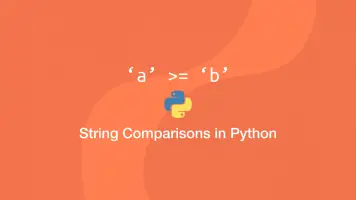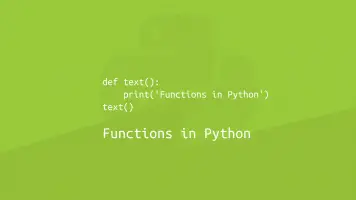How to use Not Equal in Python
A not equal expression in Python will return True if the two values supplied are not the same and False if they are. In Python, the not equal operator is != (exclamation followed by equal character) and is placed between the two values to evaluate.
Let's look at some examples to demonstrate how this works.
Assign Not Equal Result to a Variable
In the example below, we will assign the result from a not equal expression to a variable.
result = 1 != 0
print(result)
True
The two values are not equal so the result is True.
Not Equal to in an if Statement
Here is another example using a not equal expression inside an if-else statement:
if 1 != 0:
print(True)
else:
print(False)
False
Not Equal with Ternary Operator
Here is another example demonstrating the use of != within a Python ternary expression:
result = 'No match' if 1 != 0 else 'Match'
print(result)
No match







